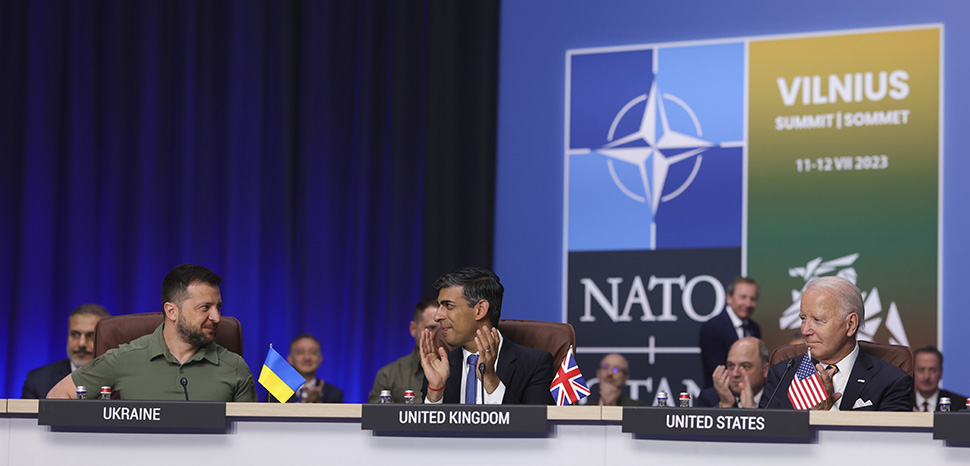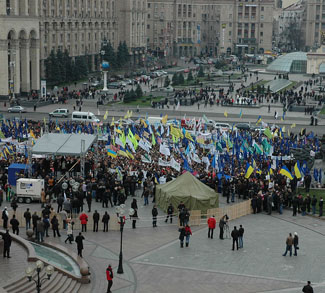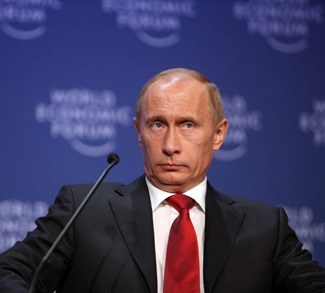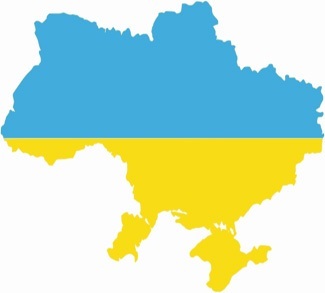James Stavridis, a retired US Navy admiral and former supreme allied commander of NATO, recently issued a statement that reflects the first lesson of the Korean War for Ukraine: “Press the West for serious reconstruction aid. South Korea was stagnant in the initial postwar decade. The sheer determination of its people, coupled with gradual economic assistance from the West, allowed them to begin to improve conditions by the end of the 1950s.”
Admiral Stavridis’s point of view has family roots, and as the admiral says, “the Korean War is iconic in my family. My father fought there in the early 1950s as a young US Marine officer. He often said to me that what happened in the years immediately after was nothing short of a miracle.”
In 1953, after the signing of the armistice, the Republic of Korea was one of the poorest countries in the world, with destroyed infrastructure, a weak and predominantly agrarian economy, and high levels of corruption. According to the Korean government, the war damage to industrial facilities, equipment, public institutions, private residences, and vehicles (excluding military installations) in South Korea amounted to approximately $3 billion. According to Charles R. Frank Jr., Kwang Suk Kim, Larry E. Westphal, this amount was almost equal to the country’s GNP for 1952 and 1953 combined.
In March 2023, the World Bank estimated the cost of reconstruction and restoration of Ukrainian infrastructure at $411 billion, which is almost three times its annual GDP for 2023. That is, the amount of damage caused by the Ukraine war has already exceeded the similar losses incurred by South Korea in the 1950-1953 war.
Thus, the main thesis issued by Admiral Stavridis is that there are no miracles in the post-war recovery of a country. Reconstruction of the country is a collective effort of partners who have a responsibility and interest in security in the region. But, assistance for post-war reconstruction is only one side of the coin. There is another, which extends into the realm of geopolitics – security guarantees. This is an area in which miracles are absolutely excluded, because it has to be a collective effort.
Therefore, a second critical factor for Ukraine, as mentioned by admiral Stavridis, will be obtaining ironclad security guarantees. Probably, that means, plain and simple, North Atlantic Treaty Organization membership. This is similar to what South Korea was granted as a full U.S. treaty partner in 1953. The accession of Ukraine to NATO needs certain and explicit decisions and probably, the time.
Here it is worth mentioning Henry Kissinger, who in January and May 2023 made meaningful statements about the arguments for Ukraine’s accession to NATO. At the same time, Kissinger noted that immediately after the end of the war, Ukraine should be provided with security guarantees from Western countries to ensure Ukraine’s safe movement to NATO as an interim step.
The US-ROK Mutual Defense Treaty, signed in October 1953, two months after the end of the Korean War, has guaranteed South Korea’s national security. Two months since the end of the war is like a technical episode, because it is virtually impossible to develop effective and large-scale security guarantees in two months. Much more time is needed, and the parties to the treaty on guarantees should already have significant developments by the time the war ends.
How significant are the developments in terms of security guarantees for Ukraine from Western partners? Are they sufficient to come into effect quickly enough after the war is over?
In early August 2023, almost a year and a half after the start of Russia’s large-scale invasion, Ukraine began negotiations with the United States on a bilateral agreement on security guarantees, as envisaged in the Joint Declaration of Support for Ukraine, which is the basis for the development of relevant bilateral agreements. “It is symbolic that the United States of America, our largest strategic partner, was the first country with which Ukraine started this process. In this way, we are creating a successful model for other partners,” emphasized Head of the Presidential Office Andriy Yermak, who headed the Ukrainian delegation to Washington. Thus, the negotiations on security guarantees have been launched.
By the end of 2023, Ukraine had hoped to sign the first agreements with partners on security guarantees, but this did not happen. The Office of the President of Ukraine set a new deadline that would meet their expectations – February 24, 2024, the second anniversary of the beginning of the war. But even here, according to insider information provided by a leading Ukrainian media outlet, there are problems: “It seems that no one wants to be the first. Everyone is glancing back at the United States, but Washington is in no hurry.”
At the same time, media outlet report that the first drafts have already been prepared. Yet it is not yet known what the documents being prepared will be called — agreements (as Ukraine insists) or joint declarations (the position of our partners). As for the content, the texts will be of the same type, but not identical: they declare long-term assistance to Ukraine in security and defense matters, financial, economic and technical support, and assistance in European integration.”
What will these security guarantees to Ukraine finally look like?
President Biden made a statement in an interview with CNN on Friday, July 7 to answer this question. He emphasized that the United States, before joining NATO, can provide Ukraine with the same security guarantees that Israel receives. “Ukraine needs to be offered a rational way to join NATO. And while Ukraine is not in NATO, the United States will provide it with the same security guarantees as Israel,” said Biden. According to him, such security guarantees include the provision of military and financial assistance, as well as the possibility of joint production of weapons.
The joint declaration of the leaders of the Group of Seven (G7: USA, Canada, Great Britain, France, Germany, Italy, Japan) and Ukraine on security guarantees for Ukraine, adopted in Vilnius (Lithuania) on July 12, was joined by 31 states (including Ukraine). Bilateral consultations have been started with all the countries of the Group of Seven, the Netherlands and the European Union regarding agreements on providing security guarantees to Ukraine. France, Italy, Germany and Great Britain handed over the drafts of the relevant agreements. Seven countries of the European Union and NATO (Austria, Croatia, Malta, Poland, Slovakia, Hungary, and Turkey) have not joined the Joint Declaration.
When will Ukraine receive security guarantees from the Western partners?
The US President declared that Ukraine can receive such security guarantees “if there is a ceasefire, if there is a peace agreement.” So, these are post-war guarantees.
It should be clarified that negotiations on post-war security guarantees for Ukraine accelerated significantly in December 2023. At the same time, from August to early December, Ukraine and its partners already have a lot of work done on security guarantees.
According to Borrell, the European Council approved the framework of the document on security guarantees for Ukraine. Following discussions with Kyiv that happened on December 5, Borrell will officially present these proposals to EU leaders before the end of the year. The package for Ukraine encompasses nine priority areas for future security commitments from the EU to Ukraine, including assistance with military equipment and hardware; training for Ukrainian military personnel; collaboration with the Ukrainian defense industry; and countering cyber and hybrid threats.
On Wednesday, 20 December, Ukraine and the United Kingdom held a second round of consultations on the conclusion of a bilateral agreement on security guarantees for Kyiv.
Ukraine and Germany held a fourth round of consultations on concluding a bilateral agreement to provide security guarantees to Kyiv on Thursday, 21 December.
The acceleration of the process of working on security guarantees, along with the complication of further assistance to Ukraine by both the US and the EU, which has the effect of “forcing peace,” are indirect signs of the West’s desire to reduce the intensity of the war and create the preconditions for its end. According to President Biden’s statement, Ukraine will receive security guarantees after that. Thus, the completeness of the security guarantees for Ukraine and the willingness to sign them by the US side not only affects the process of providing guarantees by other Western partners, but also creates preconditions for ending the war, transforming coercion to peace into encouragement of peace by the West.
Recently, Ukraine is working on developing a military component of security guarantees, and the relevant developments will be submitted to partner states upon completion of this work. This was stated by President Volodymyr Zelenskyy during the end-of-year press conference in Kyiv on December 19, 2023.
“A lot depends on us on the platform of the Ministry of Defense and the General Staff. The military component – we have to convey our vision to our partners, and this is a significant core for security guarantees. We have not yet conveyed it. There are many challenges, a lot of work, but the ball is now in our court in this matter,” Volodymyr Zelenskyy said.
It seems that Ukraine can end the war only if it has agreed drafts of relevant bilateral agreements with its partners, which will only be waiting to be signed after the war. Zelensky argues Ukraine must keep fighting because no one has yet offered the country security guarantees.
Peacemaking as a process, coercion to peace and post-war security guarantees as its integral parts are interlinked. Coercion to peace is hardly possible to succeed without post-war security guarantees to Ukraine. In November 2023 Anatol Lieven wrote that “the full engagement of the United States in the peace process from the outset will be necessary if negotiations are to have any chance of success. Only a US administration can bring sufficient pressure to bear on the Ukrainian government, while also offering reasonably credible security guarantees for the future.” Therefore, the role of the USA can not be underestimated, as well as its responsibility.
The views expressed in this article belong to the authors alone and do not necessarily reflect those of Geopoliticalmonitor.com.




